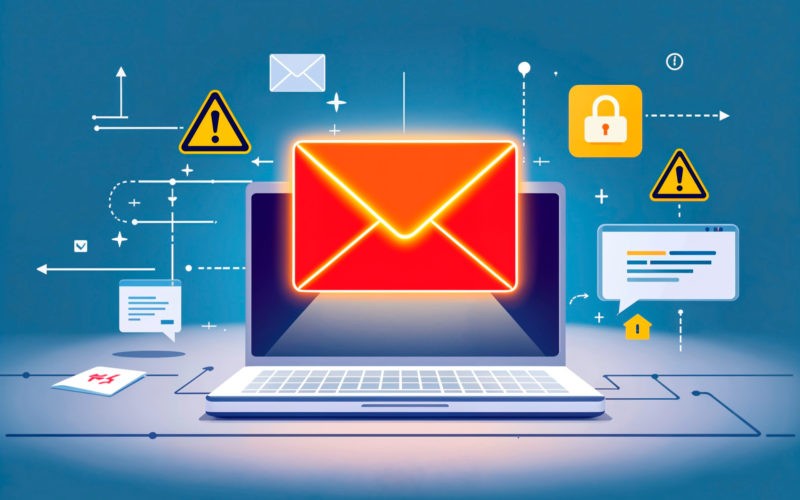Email remains one of the primary ways companies communicate and collaborate. Because email is used so widely, robust email security systems are essential. Protecting company and customer information helps maintain privacy, strengthen trust, and uphold professional integrity. This article explores why email security solutions are vital for modern businesses.
Understanding Email Threats
Email threats come in many forms. Cybercriminals use a variety of tactics — such as phishing, malware, and social engineering — to infiltrate business systems.
Phishing involves fraudulent emails designed to trick recipients into sharing sensitive information or clicking malicious links. Malware, by contrast, refers to malicious software created to disrupt, damage, or gain unauthorized access to networks and devices.
While these threats are not new, they continue to evolve in sophistication. Large enterprises and small businesses alike cannot afford to overlook email protection. Effective email security solutions are essential to detect, block, and neutralize such attacks before they cause harm.
The Cost of Breaches
The financial and reputational damage from a security breach can be severe and long-lasting. Businesses may face legal consequences, loss of customer trust, and high recovery costs. The impact often extends beyond immediate losses, affecting future growth and profitability.
Investing in reliable email security tools is therefore a proactive step that helps companies avoid costly disruptions and maintain operational stability. Data breaches often involve complex attack chains. The Verizon 2025 Data Breach Investigations Report identifies System Intrusion (often involving ransomware or stolen credentials) as the leading pattern in over 50% of breaches
Protecting Sensitive Information
Emails frequently contain confidential information such as client data, financial details, and strategic plans. When unauthorized individuals access this information, it can result in data leakage and potential legal exposure.
Implementing strong email protection — especially encryption — helps safeguard sensitive data. Encryption scrambles message contents so that only authorized recipients can read them. This ensures confidentiality and prevents unauthorized interception during transmission.
Enhancing Employee Awareness
Technology alone cannot guarantee email security. One of the most effective defenses is a well-informed workforce. Employees should be trained to identify deceptive messages, suspicious attachments, and phishing attempts.
Provide clear reporting channels for suspicious emails and encourage staff to verify unexpected requests for information. Regular workshops and training sessions can help teams stay alert to emerging threats and reinforce good cybersecurity habits.
By fostering a culture of awareness, businesses can significantly reduce the likelihood of successful attacks.
Implementing Advanced Technologies
Modern email security solutions use advanced technologies such as artificial intelligence and machine learning to enhance threat detection.
AI continuously monitors normal communication patterns and flags anomalies that may indicate malicious activity. Machine learning systems improve over time by analyzing past incidents and adapting to new threats. These tools actively identify and block threats in real time, reducing the risk of compromise.
With these technologies in place, businesses can communicate confidently, knowing their information is protected.
Ensuring Regulatory Compliance
Organizations must comply with a variety of data protection and privacy laws, such as the GDPR, HIPAA, and other regional regulations. Email security solutions help ensure compliance by encrypting sensitive data, enforcing access controls, and maintaining audit trails.
Following these regulations not only helps companies avoid penalties but also demonstrates a genuine commitment to safeguarding customer and employee information. Compliance is more than a legal requirement — it’s a sign of ethical business practice and respect for data privacy.
Building Customer Trust
Trust is the foundation of successful business relationships. Clients expect their personal and financial data to be handled with the highest level of care and security.
Implementing robust email security measures assures clients that their information is safe, building credibility and loyalty. When customers know their communications are protected, they are more likely to continue doing business and recommend your company to others.
Reducing Downtime
A cyberattack or security breach can halt business operations, cause system outages, and disrupt communications. Lost productivity and missed opportunities can have lasting effects on profitability.
By adopting comprehensive email security systems, businesses can minimize the risk of downtime and maintain seamless operations. Preventing disruptions not only saves time and resources but also reinforces reliability and resilience.
Staying Competitive
Strong email security is also a competitive advantage. Companies that prioritize cybersecurity are better positioned to attract and retain clients and partners who value secure, trustworthy communication.
In a market where data breaches are increasingly common, demonstrating a commitment to digital security can set your business apart and open doors to new opportunities.
Conclusion
Email security should not be viewed as a secondary safeguard but as a cornerstone of business resilience. It helps companies protect assets, maintain compliance, and build lasting trust with customers and stakeholders.
By adopting advanced email security solutions and promoting employee awareness, businesses can remain secure, competitive, and adaptable in a rapidly changing digital environment.












